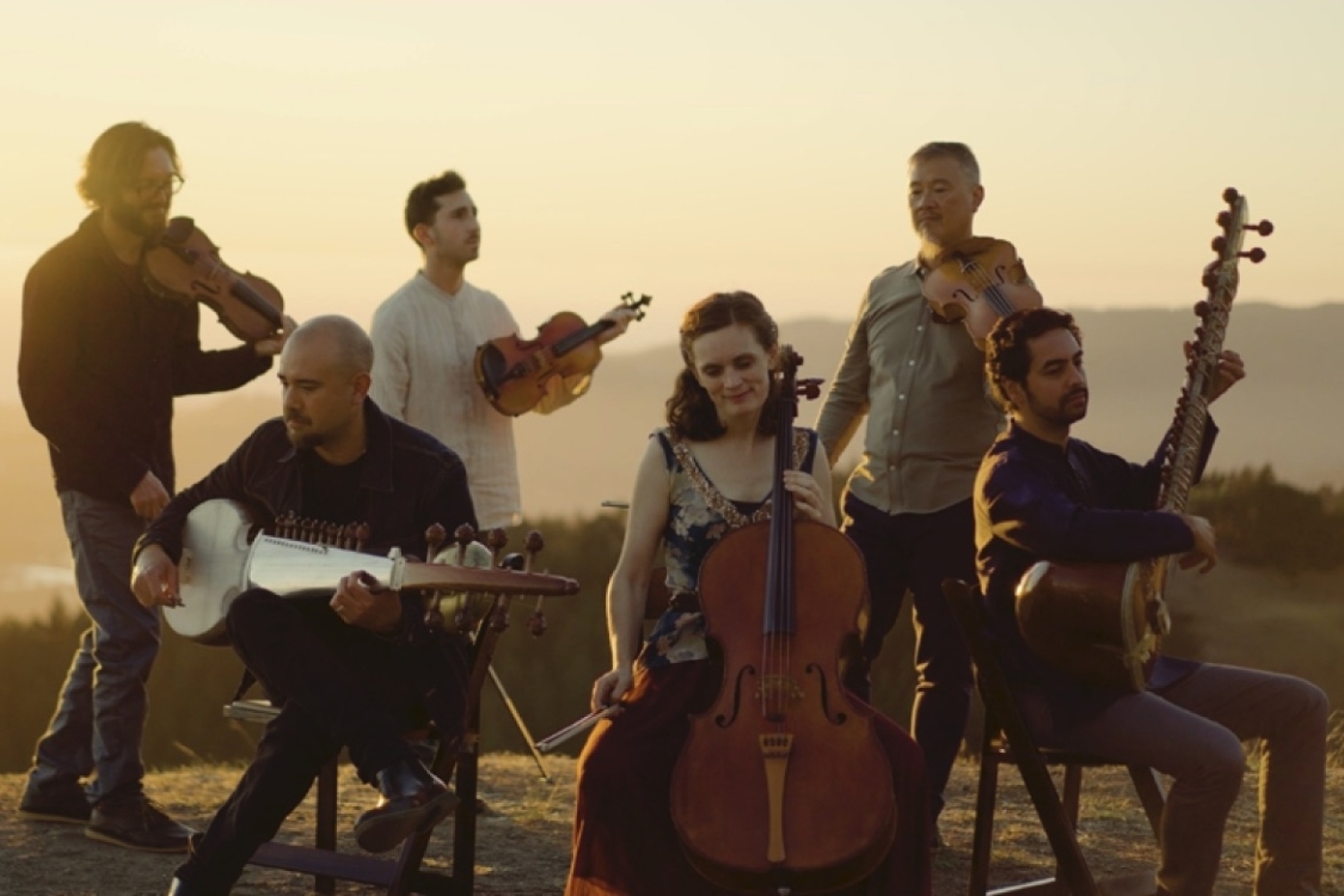

The creative collaboration between Alam Khan and Arjun K. Verma, both hailing from illustrious musical lineages, is a very special one. Alam’s upbringing was steeped in thelegendary legacy of his father, Ustad Ali Akbar Khan, and the iconic Pandit Ravi Shankar, renowned for their Sarod and Sitar Jugalbandi. These early experiences laid the foundation for his musical journey.
Arjun, son of sitarist, Roop Verma, grew up thinking music is what life is. His first memories of music were woven into the everyday fabric of existence, with the sitar becoming an extension of himself from a tender age. Their paths converged when Arjun journeyed from New York to California to study under Ustad Ali Akbar Khan. Over the years the boys learned and shared experiences under the mentorship of Khan. Later they decided to explore and expand upon the traditional Sarod-Sitar Jugalbandi—infusing it with Western string quartet elements—giving birth to their collaborative project, The Resonance Between, a testament to their shared musical journey and creative exploration. We spoke to them about it.
BUILDING AN IDENTITY
Alam: Both Arjun and I feel passionate about carrying on my grandfather and father’s vision of orchestrated ensemble music for Indian and Western instruments. We felt that diving thoughtfully into the integration of Western harmony and Indian raga and pushing this further than it had been done before, was our calling. We also conceptually wanted the music to reflect the journey of a protagonist between worlds. Since Arjun and I are both mixed raced and belonging to two cultures, we felt expressing that story of finding one’s identity between two worlds, embracing it, and creating from that unique space was important to us. Growing up there weren’t many role models of mixed descent and we would like to be a voice for those youngsters.
INTEGRATING MUSICAL TRADITIONS
Alam: I think to fuse, bend, or go beyond tradition, one must first properly learn the tradition. In this sense, I have spent most of my life studying Indian classical music, as well as immersed myself in the other musical forms I admire and compose in. Musicianship, integrity and intention are the most important above all.
Arjun: As Alam said, one must first have a solid footing in a given genre to effectively blend it with others well. Obviously, he and I have grown up within the Indian classical tradition of ragas, but we were also both exposed to European classical music from a young age. In my case, my father toured Europe every year and had many European classical musician friends so he was constantly bringing back new albums of that music. In addition, having spent close to a decade learning, performing, and practicing Western music in the ensemble format as a percussionist as a kid, gave me a respectable grounding in Western classical-based music. But we wanted to make sure that Western harmony was represented at a really high level, by someone fully trained in that system, hence the third composer being Jack Perla, who has both a deep classical as well as jazz background and has done extensive Indian classical collaboration over the years. The combination of our individual musical strengths was a huge boon in our endeavor to achieve that seamless integration.
This is an exclusive excerpt from our October EZ. To read the entire article and more such pieces, follow the link here.
Words Hansika Lohani
Date 29.10.2023